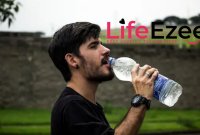Several areas of north India have been scorching over the past few days as a result of lethal heat waves. It is getting more durable for the body to adapt to intense weather when the temperature rises above 45 degrees. Our bodies respond to high heat by activating their built-in cooling mechanisms, which embody perspiration, faster heartbeats, and dilated blood vessels that enable extra blood circulation by them. The body can also develop a susceptibility to heat exhaustion and warmth stress, which may end up in signs together with weariness, nausea, cramping, and lightheadedness. Extreme warmth sometimes could cause multiple organ failures.
The hot summer days are here, and when the temperature soars above 45 levels Celsius (113 levels Fahrenheit), our bodies undergo quite a few fascinating modifications. Our physiology is negatively impacted by extreme warmth, which leads to a wide range of reactions that allow us to adapt to and survive in these harsh environments. As mercury ranges rise, sweat turns into our ally, blood vessels enlarge to never-before ranges, and our hearts beat faster to combat the heat.
SEE HOW OUR BODY REACTS TO EXTREME HEAT HERE:
Increased perspiration:
Sweating is our body’s natural cooling mechanism that is activated because the mercury rises. Sweat glands work extra hard because the temperature rises above 45 degrees to release perspiration, which evaporates on the skin and has a cooling effect. While sweating helps control body temperature and prevents overheating, it additionally causes electrolyte and water loss. It turns into important to rehydrate properly and replenish misplaced fluids to forestall dehydration and its related health issues.
Blood vessel growth:
Vasodilation is the process by which our blood vessels widen in reaction to intense warmth. Blood arteries near the skin’s surface enlarge when the temperature rises above 45 levels, permitting extra blood to go by them. This growth aids in warmth dissipation and helps with temperature regulation within the body. However, the growth of blood vessels sometimes leads to a reduction in blood strain, which might produce lightheadedness or fainting. To maintain cardiovascular health throughout intense warmth, it’s essential to drink sufficient water and take rests in cooler settings.
A fast heartbeat:
Our pulse charge usually will increase when uncovered to oppressive temperatures above 45 levels. High temperatures are considered a stressor by the body, which response by elevating cardiac output to extra successfully transport oxygen and vitamins to the cells. The body’s cooling programs are supported and essential organ operation is preserved by the heart beating extra quickly to maintain adequate blood flow throughout the body. To keep away from overexertion, people with pre-existing coronary heart points ought to take additional care when it’s hot outside.
Sunburn and skin changes:
Multiple skin-related issues may end up from extended publicity to temperatures above 45 levels. The skin might grow to be dry, delicate, and extra susceptible to sunburn as a result of intense warmth. The sun’s ultraviolet (UV) radiation intensifies, posing a better hazard for sunburn and long-term skin harm. To keep away from damaging results on the skin, it’s essential to protect it with sunscreen, protecting clothes, and shade in the course of the hottest parts of the day.
Heatstroke and warmth exhaustion:
Heat-related problems like heat exhaustion and heatstroke can result from excessive warmth as a result it may well pressure the body’s inside temperature-control systems to their breaking point. When the body loses a lot of water and electrolytes from excessive sweating, it develops heat exhaustion, which causes signs together with nausea, weariness, disorientation, and cramping in the muscles. Heatstroke, a potentially deadly situation marked by a body temperature above 40 levels Celsius (104 levels Fahrenheit), can develop from heat exhaustion if it is not handled. To avoid irreparable hurt, heatstroke requires rapid medical intervention.




